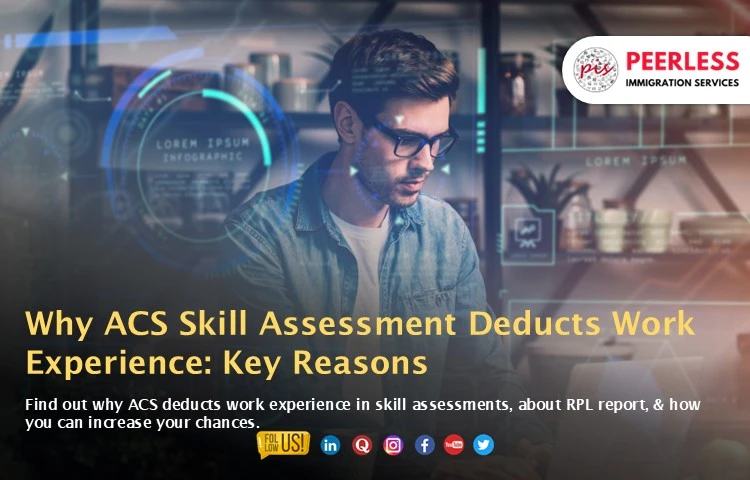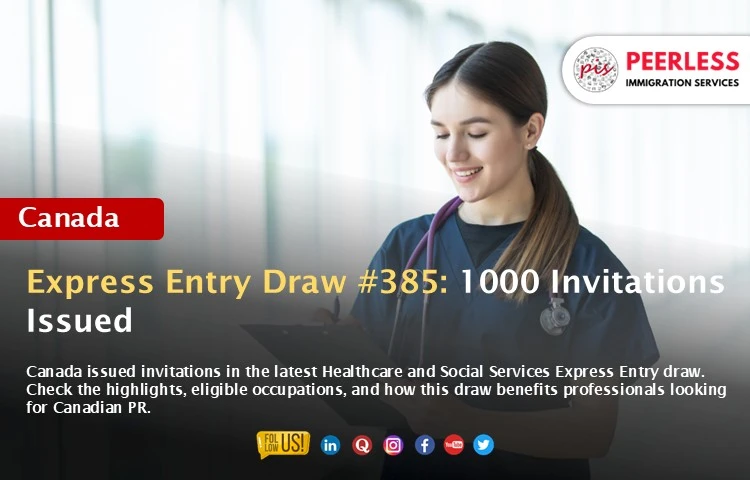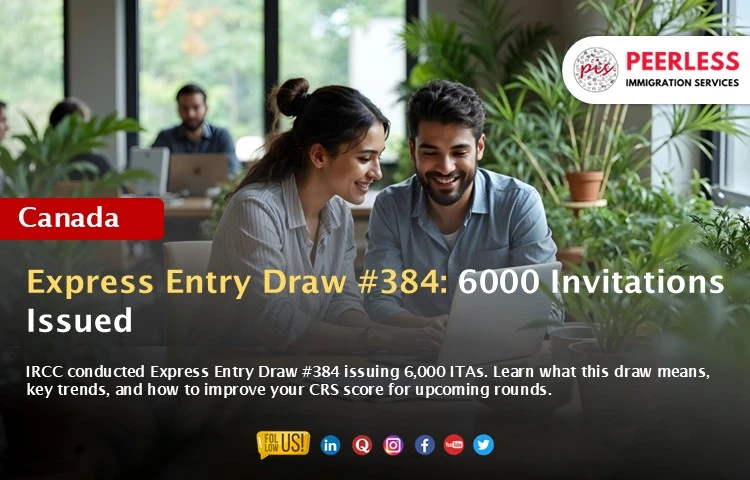
Why ACS Skill Assessment Deducts Work Experience: Key Reasons
The Australian Computer Society skill assessment is a mandatory requirement for IT professionals planning for skilled migration to Australia under visas such as the Skilled Independent Visa (Subclass 189), Skilled Nominated Visa (Subclass 190), or Skilled Work Regional Visa (Subclass 491). A common concern for applicants is the deduction of work experience years by the ACS, which can impact visa points and eligibility. In this article, we explore why the ACS skill assessment for Australian migration deducts work experience, detailing deductions based on education relevance, the significance of the Recognition of Prior Learning (RPL) report for ACS for non-ICT applicants, guidance on processing fees, and how Peerless Immigration Services ACS support can guide you to a successful ACS skill assessment for IT professionals.
What Is the ACS Skill Assessment for Australian Migration?
The Australian Computer Society skill assessment assesses an applicant’s qualifications and work experience to ensure they meet the standards for their nominated occupation under the Australian and New Zealand Standard Classification of Occupations (ANZSCO) code, or OSCA - Occupation Standard Classification for Australia. It is mandatory for IT professionals applying for skilled migration to Australia. The assessment confirms that an applicant’s skills align with Australian ICT standards, but many applicants find that the ACS deducts years from their work experience, reducing their recognized skilled employment. Below, we outline the reasons for these deductions and how Peerless Immigration Services for ACS assessment can help you navigate this process.
Key Reasons Why ACS Deducts Work Experience
1. Ensuring Relevance to the Nominated Occupation
The ACS requires that work experience must be at a professional level and directly relevant to the nominated occupation, such as Software Engineer, ICT Business Analyst, or Systems Administrator. If an applicant’s experience only partially aligns with their nominated occupation or includes non-professional roles (e.g., helpdesk support or administrative tasks), those years may be deemed irrelevant and deducted.
2. Suitability Criteria and Education Relevance
The ACS applies a "suitability criteria" to determine when work experience qualifies as skilled, based on the applicant’s educational background and its relevance to the nominated occupation. The number of years deducted depends on the qualification type and its alignment with ICT:
- Relevant Education (ICT Major, Closely Related): For applicants with a Bachelor’s Degree in ICT for Australian migration or higher in an ICT field closely related to their nominated occupation, 2 years are deducted from their total work experience. This accounts for the time needed to reach a professional skill level equivalent to an Australian ICT qualification.
- Partially Relevant Education (ICT Major, Not Closely Related): If the degree is in ICT but not closely related to the nominated occupation, 4 years are deducted to reflect the additional time required to gain relevant skills.
- Non-Relevant Education (Non-ICT Qualifications): For applicants with qualifications unrelated to ICT, 6 years or more may be deducted. These applicants must submit a Recognition of Prior Learning (RPL) report for ACS to demonstrate equivalent ICT skills through work experience.
3. Post-Qualification Experience Requirement
The ACS only recognizes work experience gained after completing a relevant qualification (or its equivalent through RPL). Experience gained before this point is not considered skilled employment. For example, if an applicant worked in an IT role for 3 years before completing their degree, those years may be deducted.
4. Insufficient or Inadequate Documentation
Incomplete or unclear documentation is a common reason for ACS work experience deduction. The ACS requires:
- Employer reference letters detailing job duties, roles, and employment dates.
- Proof of Salary, contracts, or other proof of employment.
- Resume aligning with the nominated occupation.
If documentation fails to demonstrate the relevance, duration, or professional level of the experience, the ACS may deduct those years or reject them outright.
5. Part-Time or Casual Employment
The ACS recognizes full-time work (at least 20 hours per week) as skilled employment. Part-time or casual work, even if relevant, may not be counted or may be prorated, reducing the total recognized experience.
6. Employment Gaps or Overlapping Roles
Gaps in employment or overlapping roles can lead to deductions. The ACS requires continuous skilled employment, and only the primary role aligning with the nominated occupation may be counted if multiple roles are held simultaneously.
WhyRecognition of Prior Learning (RPL) Report for ACS is Required?
For applicants with non-ICT qualifications or ICT qualifications not closely related to their nominated occupation, the Recognition of Prior Learning (RPL) report for ACS is a critical component of the ACS skill assessment for IT professionals. Its significance includes:
- Bridging the Qualification Gap: The RPL report for Australian migration enables applicants without formal ICT qualifications to demonstrate equivalent skills acquired through professional experience, making them eligible for assessment.
- Minimizing Experience Deductions: By providing evidence of ICT competency, the RPL report can limit deductions to 6 years (or more, depending on the case), compared to potentially harsher deductions without it.
- Aligning with ANZSCO Requirements: The report requires two detailed project reports showcasing ICT projects, allowing applicants to prove their skills align with their nominated occupation.
- Enhancing Application Credibility: A well-prepared RPL for ACS skill assessment, supported by employer references and project details, strengthens the application by providing verifiable evidence of professional skills.
- Mandatory for Non-ICT Applicants: The RPL for Australian migration pathway is often the only route for applicants with non-ICT qualifications to qualify for an ACS skill assessment.
How to Prepare an Effective RPL Report
- Submit two project reports detailing ICT projects, highlighting your role, technical skills, and responsibilities.
- Include employer references that align your experience with the nominated ANZSCO code.
- Address the ACS’s Key Areas of Knowledge (e.g., technology resources, system development) to demonstrate competency.
- Ensure clarity and specificity to avoid rejection or additional deductions.
Our team specializes in crafting compelling RPL reports for ACS, ensuring your project reports and supporting documentation meet ACS standards. We guide you through the process, from selecting relevant projects to aligning your experience with the nominated occupation.
Processing Fees for RPL and Non-RPL Cases
The ACS charges different fees for RPL and non-RPL skill assessments for Australian migration due to the additional evaluation required for RPL applications. Non-RPL assessments cover applicants with ICT-related qualifications, while RPL assessments involve reviewing project reports and extensive work experience for those with non-ICT or unrelated qualifications.
| Assessment Pathway | Description | Fee (AUD) |
|---|---|---|
| General Skills Assessment (Non-RPL) | For applicants with ICT-related qualifications (e.g., Bachelor’s Degree in ICT) closely or partially related to their nominated occupation. | $1,450 |
| Recognition of Prior Learning (RPL) Assessment | For applicants with non-ICT qualifications or ICT qualifications not closely related, requiring an RPL report for ACS with two project reports. | $605 |
| Appeal Fee (Level 1 or Level 2) | For appealing an assessment outcome, refundable if the decision is overturned per ACS MSA Appeals Policy. | For Level 1 Appeal its $500, and for Level 2 Appeal its $600 |
Why Choose Peerless Immigration Services for ACS Assessment?
At Peerless Immigration Services, we understand the complexities of the ACS skill assessment for Australian migration and are committed to helping IT professionals achieve their Australian migration dreams. Here’s why you should choose us:
- Expert Guidance on ACS Requirements: Our experienced migration agents are well-versed in ACS guidelines, ensuring your application aligns with the latest standards for qualifications, work experience, and documentation.
- Tailored RPL Support: For non-ICT applicants, we provide comprehensive assistance in preparing RPL reports for ACS, including crafting project reports that highlight your skills and minimize ACS work experience deduction.
- Meticulous Documentation Review: We meticulously review your reference letters, CV, and supporting documents to ensure they meet ACS criteria, reducing the risk of deductions or rejection.
- Personalized ANZSCO Code Selection: Our team helps you select the most suitable ANZSCO code to maximize your recognized experience and visa points.
- End-to-End Support: From initial consultation to application submission and follow-up, Peerless Immigration Services for skilled migration provides seamless support, saving you time and ensuring a stress-free process.
- Proven Track Record: With a history of successful ACS skill assessments for IT professionals, we have helped countless clients secure positive outcomes for their Australian migration applications.
How Peerless Immigration Services for Skilled Migration Can Help
Peerless Immigration Services offers a comprehensive suite of services to ensure your ACS skill assessment is successful:
- Application Strategy: We assess your qualifications and experience to develop a tailored strategy that maximizes your recognized skilled employment.
- Documentation Preparation: Our experts assist in drafting employer reference letters, organizing payslips, and preparing a CV that aligns with your nominated occupation.
- RPL Report Development: For non-ICT applicants, we guide you through the RPL for Australian migration process, helping you select and document ICT projects that demonstrate your skills effectively.
- Fee Guidance: We provide advice on budgeting for ACS fees and ensure your application is complete to avoid costly reassessments.
- Ongoing Support: Our team monitors your application progress, addresses ACS queries, and provides updates to keep you informed at every stage.
How to Maximize Your ACS Skill Assessment for IT Professionals Outcome
To minimize deductions and improve your ACS skill assessment outcome, consider these strategies with Peerless Immigration Services for ACS assessment support:
- Select the Right ANZSCO Code: Work with us to choose an occupation closely aligned with your qualifications and experience.
- Provide Comprehensive Documentation: We help you submit detailed reference letters, payslips, and a CV that meet ACS requirements.
- Leverage RPL for Non-ICT Qualifications: Our team ensures your RPL report for ACS is robust, with two project reports showcasing equivalent ICT skills.
- Verify Fee Requirements: We guide you to the ACS website for the latest fee details and help you budget effectively.
- Trust Our Expertise: With Peerless Immigration Services, you gain a dedicated partner to navigate the ACS skill assessment process with confidence.
The ACS skill assessment for Australian migration experience deduction ensures that only relevant, skilled, and post-qualification experience is recognized for skilled migration to Australia. Deductions vary based on education relevance: 2 years for closely related ICT qualifications, 4 years for partially related ICT qualifications, and 6 years or more for non-ICT qualifications, requiring a Recognition of Prior Learning (RPL) report for ACS. The RPL for Australian migration is crucial for non-ICT applicants, bridging qualification gaps and minimizing deductions.
With Peerless Immigration Services for ACS assessment, you gain a trusted partner to navigate the ACS skill assessment for IT professionals process. Our expertise, personalized support, and commitment to excellence ensure your application is optimized for success, bringing you closer to your Australian migration goals.
Ready to Start Your ACS Skill Assessment? Contact Peerless Immigration Services for skilled migration today for expert guidance and tailored support.















